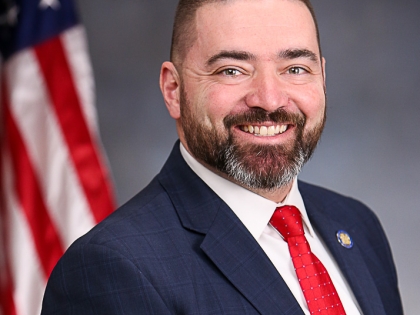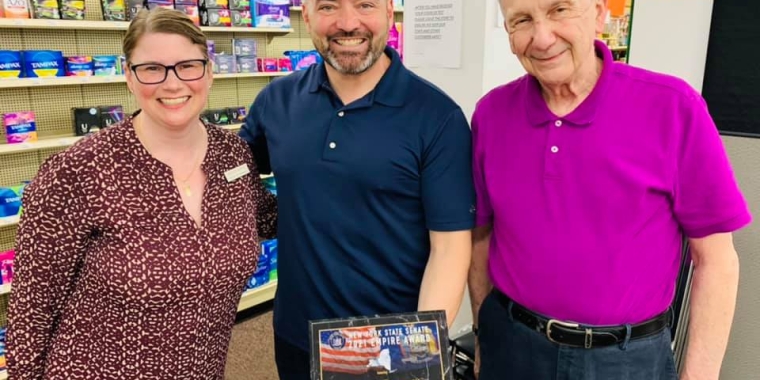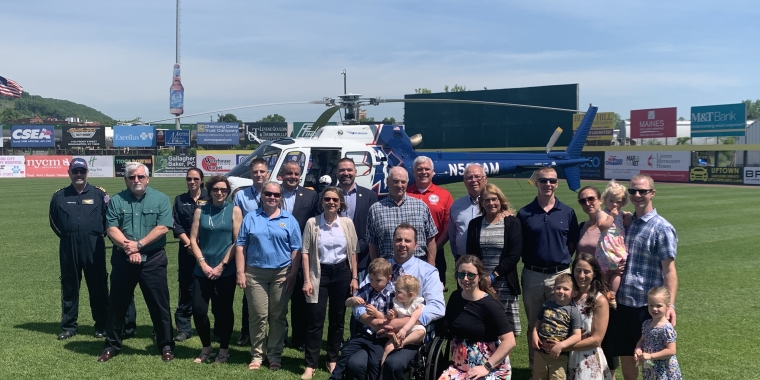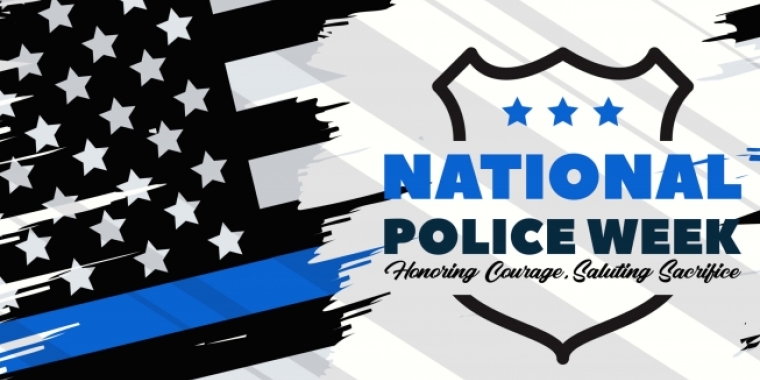
Senate Joint Task Force on Heroin and Opioid Addiction Releases Report and Legislative Recommendations.
May 17, 2016
-
ISSUE:
- Heroin and Opioid Addiction

The New York State Senate Joint Task Force on Heroin and Opioid Addiction today released a report summarizing findings and over 40 recommendations resulting from forums held across the state to address New York’s ongoing heroin epidemic.
Senator Fred Akshar said, "In my previous career as an undercover narcotics investigator, I witnessed families being ripped apart by this heroin epidemic. It taught me that we can't enforce our way out of this problem. Since starting my new job, I've focused on prevention, treatment & recovery, education and enforcement. There's a time to listen and there's a time to act. The Task Force listened to families and communities across the state. Now we're acting on comprehensive legislation to fight this scourge. The heroin epidemic did not arrive at our doorstep overnight, and it won't be eliminated overnight either. It knows no social or economic class, no race or creed. We need to come together as a state to fight this problem together. We can't allow more people to die."
In its report, the Task Force identified a four-pronged approach that would stem the growth of the heroin and opioid crisis - prying loose the stranglehold it has on New York’s communities - and supports those battling their addiction on the journey to recovery:
Prevention: Increasing awareness to better educate the public of the inherent risks involved in using heroin and prescription opioids, and taking advantage of technological advances available to deter the abuse of prescription drugs and prevent addiction;
Treatment: Recognizing the critical need for expanded and improved insurance coverage, and enhancing access to all forms of effective treatment - including inpatient, outpatient, and Medication Assisted Treatment - in order to help individuals return to stable and productive lives;
Recovery: Providing the proper supports, such as safe environments, stable employment, and opportunities to participate in diversion programs that avoid incarceration in order to facilitate successful recoveries from addiction; and
Enforcement: Implementing criminal justice reforms that give law enforcement the necessary tools to disrupt the supply of heroin and stop the diversion of opiate prescription medications within the state.
LEGISLATIVE RECOMMENDATIONS:
The Task Force incorporated the four essential prongs and collaborated with stakeholders in communities across the state as part of its strategy to develop the report’s legislative and budgetary recommendations. These recommendations create an effective, multi-faceted, and comprehensive approach to addressing many of the issues raised by the
state’s opioid crisis.
The Task Force is recommending the following legislative actions for the Senate to consider during the 2016 legislative session and for state agencies to assist in implementing:
Prevention:
- Limiting initial prescriptions of controlled substances (S6091B - Passed on 5/17/16)
- Creating a Prescription Pain Medication Awareness Program (S4348A - Passed on 5/17/16)
- Use of abuse-deterrent technology for opioids (S6962A - Passed on 5/17/16)
- Ensuring proper opioid education to prescribed patients (S7315 - Passed on 5/17/16)
- Establishing a Narcan kit registry (S6516A - Passed on 5/17/16)
- Providing instruction of mental health, alcohol, drug and tobacco use in junior and senior high schools (S5546A - Passed on 5/17/16)
- Requiring patient counseling prior to issuing a prescription for a schedule II opioid (S7365 - Passed on 5/17/16)
- Increasing availability of naloxone (S6346A); and
- Requiring the state Department of Health (DOH) and the state Office of Alcoholism and Substance Abuse Services (OASAS) to examine and report on the underreported and at-risk populations, including but not limited to Native American Tribes and the effect the heroin and opioid crisis is having on those populations.
Treatment:
- Continuing education for credentialed alcoholism and substance abuse counselors (S7301 - Passed on 5/17/16)
- Removing barriers to Medication Assisted Treatment (MAT) (S7317A - Passed on 5/17/16)
- Examining insurance coverage for medications approved by the FDA for use in MAT of opioid addiction and examine the accessibility across the state to new treatment modalities;
- Enhancing emergency intervention procedures (S6248B - Passed on 5/17/16)
- Establishing assisted outpatient treatment for substance use disorders (S631 - Passed on 5/17/16)
- Requiring the DOH and OASAS to examine and report on the most effective treatment modalities, including ideal settings, treatment length, and best practices for heroin and opioid addiction;
- Creating and appointing an Ombudsman to assist individuals and families in obtaining appropriate insurance coverage for treatment services;
- Requiring all OASAS-certified treatment providers to inform individuals receiving treatment and their families of their right to file an external appeal with the Department of Financial Services (DFS) and provide them with the means necessary to access such appeal; and
- Requiring DOH and DFS to rigorously scrutinize the implementation of any conditions placed on accessing treatment.
Recovery:
- Including for-profit providers in the RFP Process for substance use disorder and gambling programs (S7446 - Passed on 5/17/16)
- Creating a Sober Living Task Force (S3989A - Passed on 5/17/16)
- Expanding treatment options for judicial diversion participants (S6874 - Passed on 5/17/16)
- Expanding access to judicial diversion programs (S6322A)
- Encouraging employment of recovering users (S2346)
- Enacting the Wraparound Services Demonstration Program (S7748A)
- Requiring DOH and OASAS to examine and report on vital statistics related to heroin and opioid addiction, including relapse rate, length of treatment, and what, if any, follow up care supports are in place upon discharge.
Enforcement:
- Enhancing penalties for the sale of controlled substances on park grounds and playgrounds (S994, Golden) - this bill passed the Senate on March 1, 2016;
- Facilitating the conviction of drug dealers (S100 - Passed on 5/17/16)
- Expanding the crime of operating as a major trafficker (S4177 - Passed on 5/17/16)
- Creating Drug-Free Zones around drug or alcohol treatment centers and methadone clinics (S7200 - Passed on 5/17/16)
- Establishing appropriate penalties as it relates to heroin sales (S7012 - Passed on 5/17/16)
- Enhancing judicial access to juvenile records for determining judicial diversion program eligibility (S6317 - Passed on 5/17/16)
- Adding fentanyl to the controlled substance schedule (S6632A - Passed on 5/17/16)
- Establishing Xylazine as a controlled substance (S7397 - Passed on 5/17/16)
- Creating the crime of homicide by sale of an opioid controlled substance (S4163 - Passed on 5/17/16); and
- Developing a formula to dispense funds acquired from the seizure of assets used in the commission of drug crimes.
Bills that have passed have been sent to the Assembly.
BUDGETARY RECOMMENDATIONS:
The report highlighted this year’s state budget commitment of $166 million for heroin and opioid crisis, treatment, outpatient, and residential services. Due to advocacy by the Senate’s Task Force members, the budget included an increase of $25 million above the Executive Budget’s original proposal.
The report recommends that this additional $25 million would support: Family Support Navigator and Navigator training programs; On-Call Peer programs; Adolescent Clubhouses to provide safe and welcoming spaces for teens; Recovery Community and Outreach Centers; Recovery Coach peer mentoring programs; a “Combat Heroin” Public Service Campaign; Opioid Overdose Prevention program; Opioid Medication Treatment program; Transitional Housing Opportunities; Local Government Unit Block Grants;
School Resource Officer Training programs; and a Wraparound Services Demonstration Program.
The report is just the latest step taken by the Senate Majority Coalition to meet the heroin crisis head on -- seeking legislative solutions and securing necessary funding. Since 2011, laws have been adopted to establish Good Samaritan protections, further expand access to naloxone, create I-STOP, and enhance insurance coverage among others.
Members of the bipartisan task force include Senators Fred Akshar
(R-C-I, Colesville), John Bonacic (R-C-I, Mount Hope), Phil Boyle (R-C-I,
Suffolk County), David Carlucci (D, Rockland), Thomas Croci (R, Sayville),
Hugh Farley (R-C, Schenectady), John Flanagan (R-C-I, East Northport), Rich
Funke (R-C-I, Fairport), Pat Gallivan (R-C-I, Elma), Martin J. Golden
(R-C-I, Brooklyn), Joseph A. Griffo (R, Rome), Kemp Hannon (R, Nassau),
Andrew Lanza (R-C-I, Staten Island), William Larkin (R-C,
Cornwall-on-Hudson), Kenneth LaValle (R-C-I, Port Jefferson), Carl L.
Marcellino (R, Syosset), Kathleen A. Marchione (R-C, Halfmoon), Jack
Martins (R-C-I, Mineola), Michael Nozzolio (R-C, Fayette), Tom O’Mara (R-C,
Big Flats), Michael Ranzenhofer (R-C-I, Amherst), Patty Ritchie (R-C,
Heuvelton), Joseph Robach (R-C-I, Rochester), Diane Savino (D, Staten
Island/Brooklyn), Susan Serino (R, Hyde Park), James L. Seward (R-C-I,
Oneonta), David J. Valesky (D-Oneida), Michael Venditto (R-C-I,
Massapequa), and Catharine Young (R-I-C, Olean).
The full report with detailed findings and recommendations can be
found here:
https://www.nysenate.gov/sites/default/files/articles/attachments/htf_report_final_5.17.16.pdf
related legislation
Share this Article or Press Release
Newsroom
Go to Newsroom


